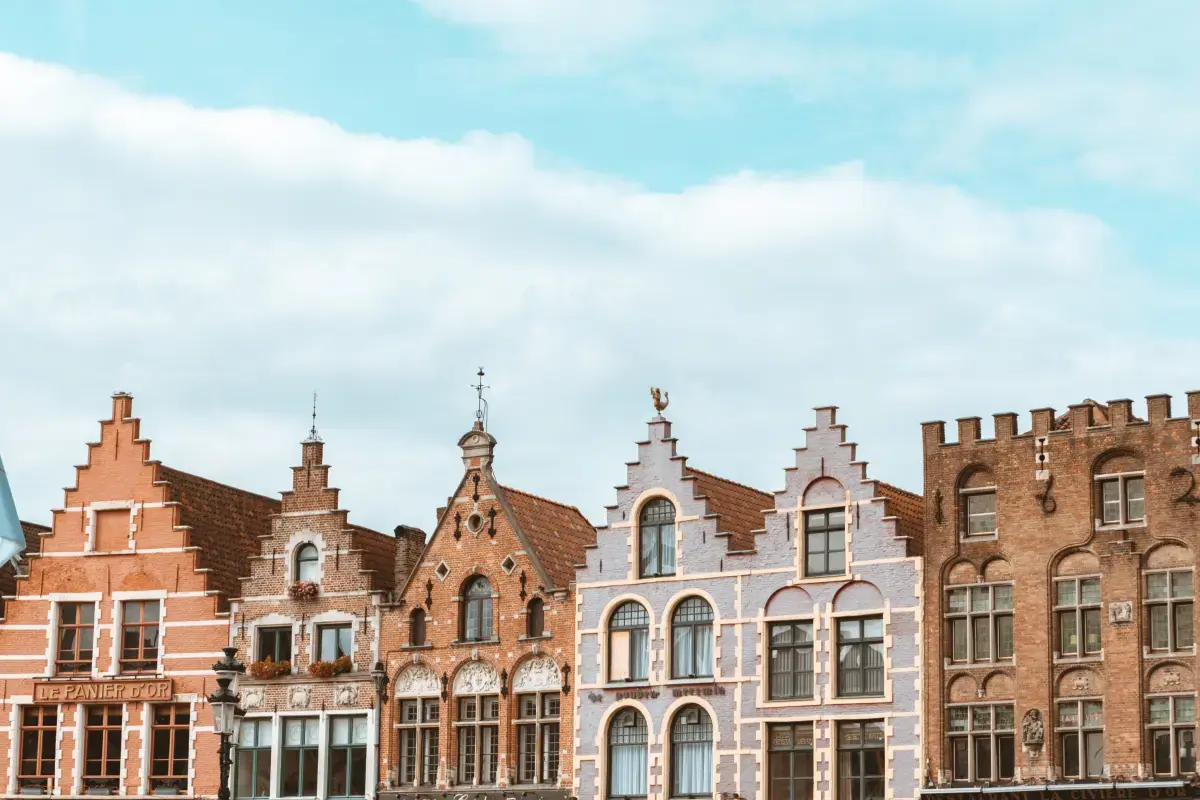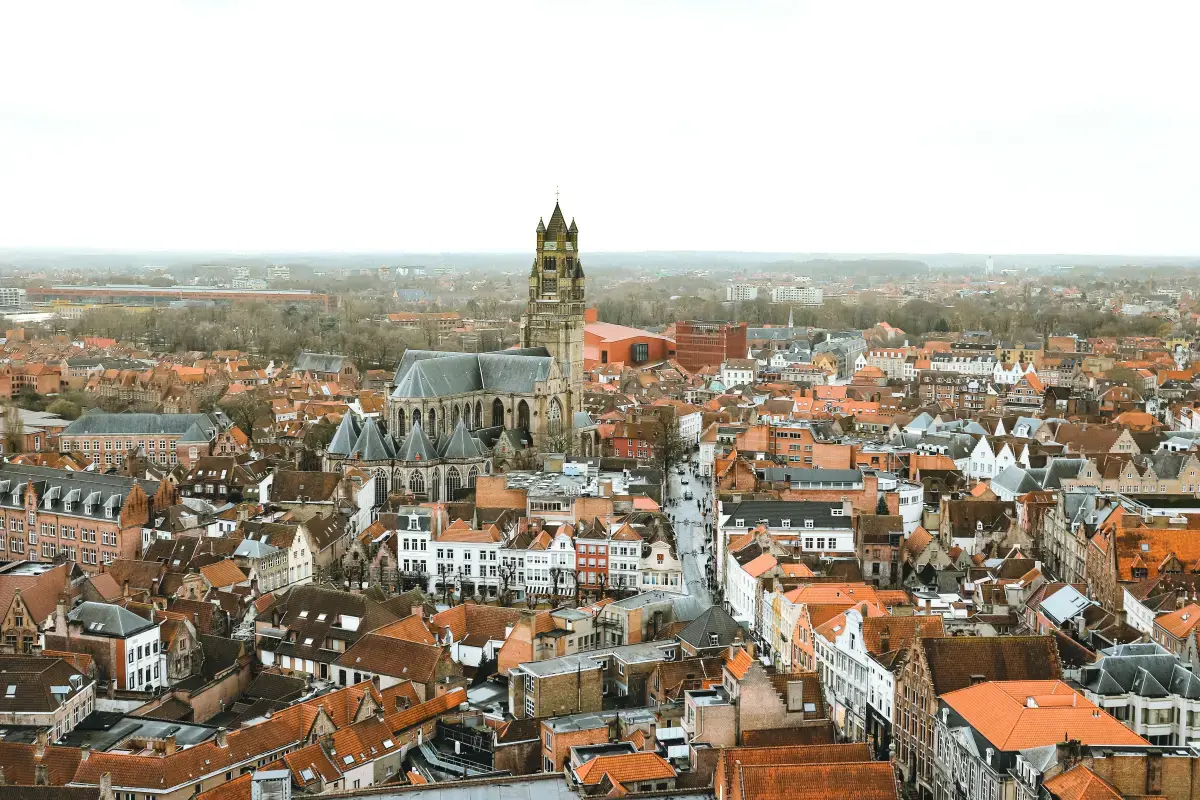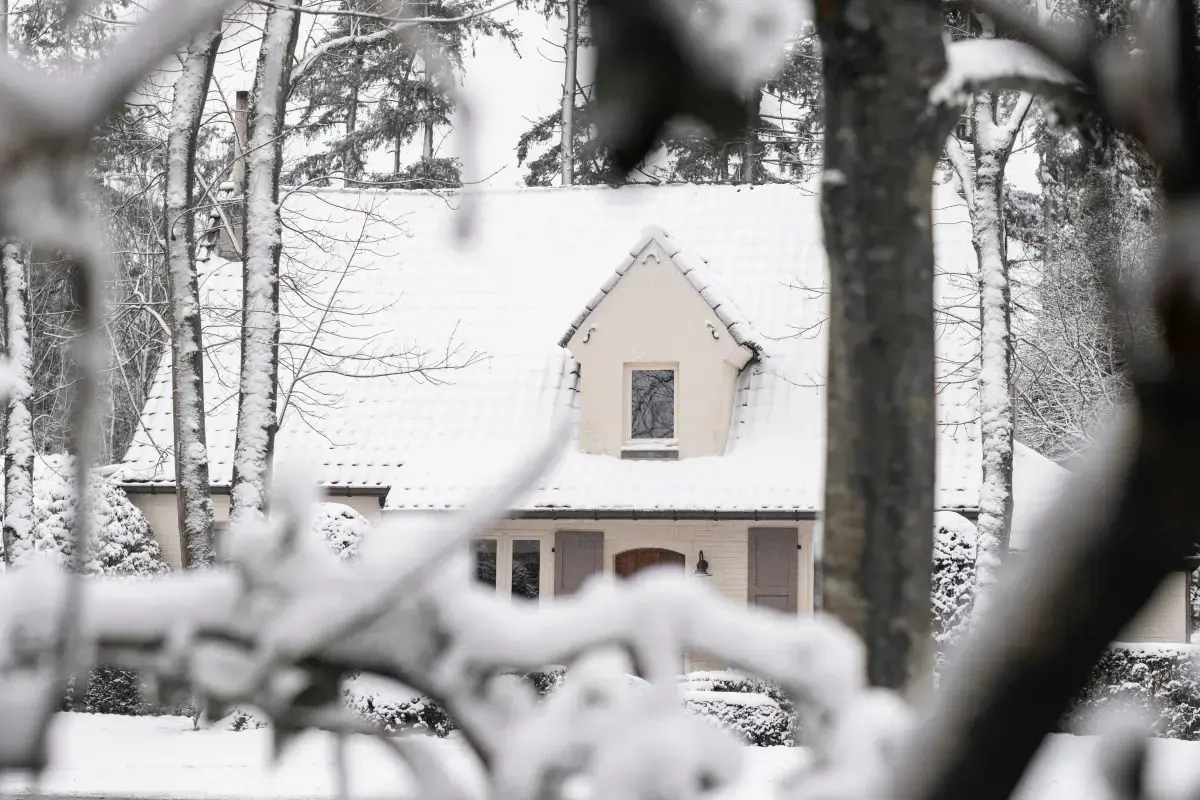- Anesthesiologist
- Obstetrician and Gynecologist
- Psychiatrists
- Surgeons
- General Internal Medicine
- Physicians
- Ophthalmologists
- Orthodontist
- Product Manager
- Artificial Intelligence & Machine Learning (AI/ML) Engineer
- Full-Stack Developer
- Cloud Architect
- DevOps Engineer
- Blockchain Engineer
- Software Architect
- Big Data Engineer
- Internet of Things (IoT) Solutions Architect
- Data Scientist
- Cyber Security Architect

Moving to Belgium in 2025
Step by step guide on migrating and relocating to Belgium in 2025?
Use our Guide to find all the moving information you may need if you are thinking of moving or working in Belgium.
People relocate and move to Belgium for many reasons. One of the main reasons is the cost of living. Belgium has a much lower cost of living than many other European countries, so expats looking to make their money go further are often drawn to this country as a result. Additionally, Belgium has excellent job opportunities within the service sector. There is an abundance of well-paying jobs in areas such as hotel management and information technology. Another reason people relocate to Belgium is for its healthcare system. Belgium has a universal public health care system that covers all citizens and covers a very wide range of medical treatments and services. Foreigners who come to the country to live and work also have access to the healthcare system, which is why it is often a popular choice for those who need long-term medical treatment. Belgium is also home to a thriving arts and culture scene. The famous cities of Brussels and Ghent both host regular festivals and events, which draw in locals and expats alike. Additionally, the countryside of Belgium offers a peaceful and tranquil setting for those who wish to get away from it all. Finally, Belgium is a relatively safe destination for expats. The countrys crime rate is one of the lowest in Europe, so expats can feel safe walking around the streets. Additionally, the countrys political situation is stable, making it a good option for those who are concerned about potential civil unrest.

Gigs
Cost of Moving to Belgium
Moving to Belgium has some costs associated with it that should be considered before making the move. 1. Visa/Residency: Depending on your current nationality and the citizenship of Belgium, you may need to apply for a visa or residency permit. You may need to pay fees to apply as well as provide specific documents and information. 2. Passport/Travel Documents: If you are living in a different country, you may need to apply for a new passport or extend your current one. There will also be cost associated with any entering the country with a travel document if your passport is not accepted. 3. Immigration/Customs: If you are moving from another country, you may need to pay customs and immigration duties. Fees vary depending on the type of goods you are bringing into the country. 4. Housing/Accommodations: Accommodation costs in Belgium vary depending on location and type. The rental market can be expensive, so it is best to research various communities and compare prices before making a choice. 5. Moving Costs: Moving to Belgium means you will have to pay for the packing and transporting of your items. Professional movers will be able to quote you rates depending on the estimated volume of the items you need to move. 6. Transportation Costs: When moving to Belgium you will need to factor in the cost of transportation. There are local public transit costs to consider as well as using a vehicle of your own. 7. Language Classes: If you are unfamiliar with the language of Belgium, you may need to sign up for language classes to help you learn the language and adjust to life in Belgium. 8. Healthcare: You will need to sign up for health insurance upon arriving or relocating to Belgium. There are a few options available to residents, some of which may require a monthly fee. 9. Taxes: It is important to note that all residents, regardless of their nationality, must submit a tax return each year. The amount of taxes you will pay will depend on your individual situation. 10. Other Costs: There may be other costs associated with moving to Belgium, such as obtaining a driver’s license, registering your car, and setting up utilities. Be sure to factor in these additional costs in your budget.

Jobs
Best Jobs in Belgium
One of the most popular jobs for migrants moving to Belgium is engineering. Belgium is one of the most important european countries when it comes to the production of vehicles and engineering consultancy. Salaries for engineers in Belgium generally range from €2,000 to €4,000 per month, depending on experience and the type of engineering. Another popular job for migrants coming to Belgium is in the healthcare sector, including nursing and doctor roles. Nurses in Belgium can earn between €2,000 and €3,200 per month and doctors can earn anywhere between €2,700 and €4,400, depending on experience and seniority. Another popular role for migrants coming to Belgium is in the computer science and technology sector. Salaries for computer scientists and technologists in Belgium can range from €2,000 to €4,000 per month for entry-level roles, and more experienced professionals can earn upwards of €6,000 per month. Lastly, the finance sector is very popular among migrants moving to Belgium. Positions in accounting, financial analysis, and investments can all pay very well - salaries in the finance sector can range from €2,000 to €4,000 per month for entry-level positions, and more experienced professionals can earn up to €7,000 per month.

Volunteers
Weather in Belgium
Belgium has a temperate climate with mild summers and cool winters, and increasingly variable temperatures during different times of the year. The climate is mainly influenced by oceanic air masses from the North Sea and Atlantic Ocean, so humidity is usually high. The weather can be very unpredictable, often changing from one day to the next, with temperatures ranging from a few degrees below to a few degrees above 0°c. Spring (March to May) typically sees more rain and colder temperatures, but often warm periods suddenly break through, occasionally raising temperatures to as high as 25°C. Summer (June to September) is typically mostly dry and sunny, with occasional hot days. Summer temperatures regularly exceed 28°C and may even reach 40°C during heat waves. Autumn (September to December) is the rainy season, though summers can often extend into October. Temperatures cool quickly and can drop to near freezing on some days. Winter (December to March) is typically cold, with averages of around 5°C and occasional periods of snow and frost. Despite this, cold snaps can also give way to warmth and sunshine, with temperatures often reaching 15°C.

Promote
Tax & Welfare System in Belgium
The Belgian tax system is one of the most complicated and burdensome systems among developed countries. It is a multi-layered system of taxes on income, capital, wealth, inheritance, social security contributions, and value-added taxes (VAT). Income taxes are levied in the form of an individual federal income tax and a social security tax. Both are progressive taxes, meaning the tax rate increases as your income level increases. The federal individual income tax is a progressive tax, which means that when adjusted for inflation, income is taxed at higher percentages as the level of income rises. In 2020, individual taxpayers pay a 25% rate on income up to € 30,805, while those earning more than € 201,291 pay 50%. There are several deductions available to taxpayers that lower their taxable income. Belgium also levies social security taxes, which range from 0.94% to 14.8%. Wealth tax is also levied in Belgium at progressive rates, with a maximum rate of 1.20%. This tax is imposed on an individuals net worth, or the total value of an individuals assets minus their liabilities. It is only applicable to those with net worth over € 1 million. Inheritance tax is also levied in Belgium based on the value of the inheritance and the relationship between the deceased and the heir. Inheritance tax rates range from 5% to 40%, with the top rate applying to inheritances of € 24,000 or more. Value-added tax (VAT) is also imposed on goods and services in Belgium. The standard rate is 21%, with reduced rates of 6% and 12% applicable on certain goods and services. The Belgian social welfare system provides a range of social benefits to support individuals and families in need. These include income support, child benefit, housing aid, family allowances, unemployment benefits and sickness insurance. Income support is a monthly payment to help people with a low income and limited financial resources. The amount received depends on the individuals family situation and income. Child benefit is available to families who have a child under the age of 18. This benefit provides a fixed amount per month to cover the costs of raising a child. Housing aid is available to individuals, couples and families who are in need of support in the form of rent or mortgage payments. Financial aid and advice is also available to individuals and families in order to help them find adequate housing. Family allowances provide income support for parents and children. These are available to households that meet certain criteria and are tailored to the needs of the family. Unemployment benefits are available to those who are registered as unemployed with the social security system. These benefits provide a regular income while the individual is seeking employment. Finally, sickness insurance is available to those who are registered with the Belgian social security system. This insurance covers the cost of medical treatment and financial aid if an individual is unable to work due to illness or injury.

Holidays in Belgium
Belgium celebrates 10 national holidays each year, which are set by the European Union. Public holidays in Belgium may vary from year to year and according to the region in which a person lives. The national holidays are as follows: * New Years Day: January 1 * Easter Sunday and Easter Monday: Spring, usually in late March to early April * Labor Day: May 1 * Pentecost: Spring, usually in late May to early June * Belgian National Day: July 21 * Assumption of Mary: August 15 * All Saints: November 1 * Armistice Day: November 11 * Christmas Day: December 25 * Boxing Day: December 26 In addition to the official holidays, many other Belgian festivals and holidays take place at different times throughout the year. These include the Brussels Balloon Parade (June of each year) and Carnival (February-March of each year).

Where to Live in Belgium
Belgium is a small but densely populated country, with over 11 million people, most of whom live in the densely populated cities and regions. The most densely populated areas are the greater Brussels area and Flanders. The capital, Brussels, is the home of the Belgian government and European Union institutions, and has many large international companies, banks and research and development centers. Because of these major employers, the employment rate in Brussels is high and many people are employed in professional and administrative positions. Flanders, on the other hand, is generally seen as an industrial and commercial center. Over half of the entire population of Belgium (6 million people) resides in Flanders, and the region is home to many industrial centers, such as the port of Antwerp, as well as the chemical and metal industries. Manufacturing, engineering and transportation are some of the major job sectors here. Overall, Belgium has a very developed and competitive economy, with a high rate of employment and a wide range of job opportunities. Most jobs are found in the densely populated areas of Brussels and Flanders.

Sports & Recreation in Belgium
Belgium is known for its enthusiasm for sports, with a wide range of activities available to suit different tastes. Football: Football is perhaps the most popular sport in Belgium and many professional teams play in the First and Pro League. Soccer is played at a local level as well, with many recreational and amateur teams. Cycling: Cycling is a particularly popular activity in Belgium, with many well known races taking place each year, such as the Tour of Belgium and the Tour of Flanders — both of which draw thousands of spectators. Marathon Running: Belgium is home to the Brussels Marathon and a number of smaller races taking place throughout the year. These events are popular with runners from all over the world. Golf: Golf is a popular recreational activity in Belgium, and the Conq Golf Club near Liege is particularly well known for its quality courses. Tennis: Tennis is a popular sport in Belgium, with many public and private courts available around the country. Hiking: Hiking is a popular activity in Belgium, with numerous trails offering great views and fresh air. Ice Hockey: Ice hockey is particularly popular in Belgium, and the national team is strong. Basketball: Basketball is also popular, with the national team regularly qualifying for the EuroBasket international tournament. Wrestling: Wrestling (Flemish) is a traditional sport in Belgium which is still practiced in the local areas.

Cost of Living & Housing in Belgium
The cost of living and housing in Belgium is quite high, especially in its larger cities such as Brussels, Antwerp, and Ghent. Generally, housing costs in Belgium make up most of the expense, with rent typically accounting for at least 30% of monthly expenses. Housing costs can vary significantly depending on the location and type of housing. On average, rents in Brussels tend to be among the highest in the country, with a one-bedroom apartment in the city centre costing around €725 per month. Rent prices in outer regions of the city, such as the suburbs, typically range between €500 - €650 per month. Outside of Brussels, rents in smaller cities and towns tend to be more affordable. A one-bedroom apartment in Ghent, for example, costs around €550 per month on average. Utilities in Belgium are relatively expensive. Gas and electricity prices vary depending on usage, but electricity generally costs around €0.20 – €0.25 per kilowatt hour. Water, gas, heating, and sewerage typically cost around €140 – €200 per month. In terms of groceries, Belgium isn’t particularly expensive. Basic food costs such as bread, milk, eggs, and vegetables usually hover around €4 - €10 per shopping haul. Prices for mid-range and luxury items such as wine, exotic fruits, and cheese tend to be higher, with the overall cost of groceries averaging around €90 - €150 per person per month. For healthcare, Belgium has a universal healthcare system which is funded by tax contributions from citizens. All residents must be registered with a local healthcare insurer to access benefits, although for those who don’t qualify for free coverage, insurance can be purchased privately. Overall, the cost of living and housing in Belgium is high, especially in its largest cities. Utility prices, food costs, and rent tend to be particularly expensive, with rent typically accounting for the majority of monthly expenses.

Finding a Job in Belgium from Overseas as a Foreigner?
Use our Job hunting & job seeking guide to help your job searching easier.

The Best Rated Top 20 Recruitment Agencies in Belgium
When searching for a Job from Overseas, reaching out to established Recruitment Agencies can help in your Job Search in Belgium

What are the Best job boards in Belgium
Jobseekers searching for jobs in Belgium find the below job portals in in Belgium as the best job websites for finding employment in in Belgium
Best International Removals Companies to/from Belgium
When the move to Belgium gets closer, finding local and international removals companies that suit your requirements are critical. Find a list of the best companies Near You.

Expat info about living in
Don't just take our word for it.
Use the Best Forums in Belgium to obtain all the independent advise about moving, living & working in Belgium

Immigration Advice and Visa InformationBelgian
Need assistance with obtaining the correct Visas and Work Permits in Belgium.
- Get expert advice to make the move to Belgium as easy as possible

Find Trusted Local Home Services
When you arrive, understanding the Best Local Services to help with your odd jobs and tasks around the home is essential.

Best Areas to Live in Belgium
Popular towns, cities and regions that are proving popular with migrants moving to Belgium
Study and Higher Education in Belgium
Search our list of all universities in Belgium to help your reach your educational goals.
- Find the Best University in Belgium that suits your needs

Featured Locations
Frequently Asked Questions
- Construction
- Business Analysis
- Web & App Development
- Animation
- Nursing
- Teaching
- Engineering
- Marketing
- Plumbing
- Carpentry
- Software Engineer
- Data Analyst
- Hospitality Staff
- Builders
- Full-time
- Part-time
- Permanent
- Freelance
- Gig Jobs
- Contract
- Weekend work
- Out of Hours
- Night shift
- Casual
- Temporary
- Remote
- Work From Home
- Work From Anywhere
- Telecommuting
- Flexible
See here for more Help & Support questions



